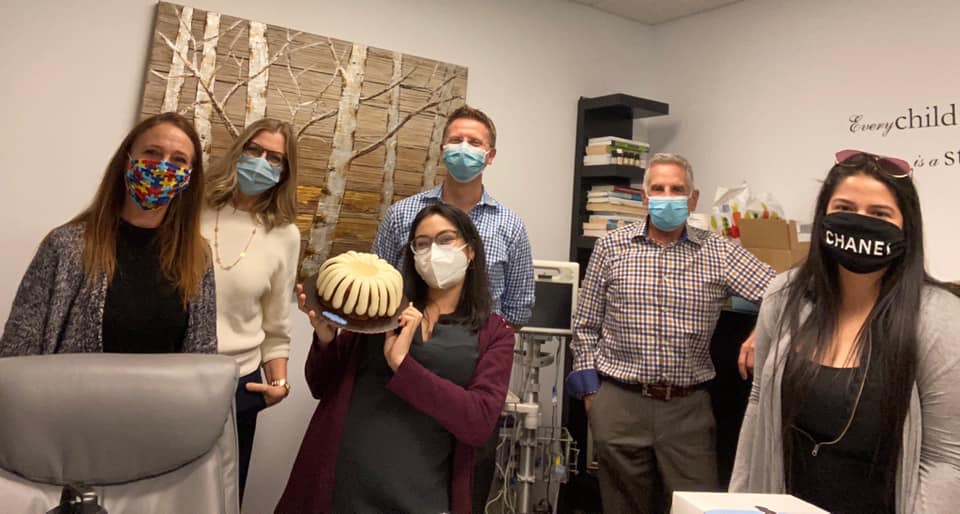The New York Times recently published their version of “How to Choose the Right Pediatrician“. That was great advice for the last century. Web-savvy parents being more knowledgable than co-authors Prof. Chang and Dr. Wilkerson gave due credit, my estimation of what families need to consider may provide a more useful prescription.
The days of developing a personal relationship with your pediatrician are passing quickly. Multi-physician groups. Multi-specialty groups. Nurse Practitioners’ and Physician Assistants’ assistance. Docs-in-a-Box. This is the prelude to even further distance from the ‘real’ doctor. Telemedicine is here to stay. We need to make the best of it.
Moms and Dads will ask family and neighbors about a ‘good doctor’, to be sure. However, practitioner reimbursement will determine the family’s options, navigating an increasingly more complex system than even the present feudal alliance with payors (sic). As parents seek a medical office that possesses the infrastructure for on-line labs and appointments, as was suggested in the above-referrenced article, the number and variety of practitioners will, likewise increase.
The future of pediatric visits, for the most part, is going to include increasing digital documentation (pictures, videos) and virtual interaction. This sea change will likely reduce spread of infection, and families find it quite convenient. In my estimation, more distance = fewer accurate diagnosis and increasing incidence of unnecessary or incorrect treatments. I am a dinosaur in the medical profession, so time will tell. Certainly, insurance, pharmaceutical, medical malpractice, and physician management companies will be collecting extensive data. When properly utilized, large real-time databases detailing nutrition, red flags for growth and development, ADHD, and other parameters can provide useful knowledge.
Your child’s Pediatric visits with ‘The Company’ may look something like this:
“Hello, you have reached Mega-Pediatrics Medical Insurance Group.
In an emergency, call 911 and/ or go directly to your nearest emergency room.
If this is not an emergency, please answer the following questions…
If it is time for your child’s vaccination, someone will answer immediately. (Press 1)
Otherwise, please send an email with your issues (help@www.yeahright.org), or visit our FAQs page where you will be directed to further assistance. However, if you prefer to stay connected, you can ask our on-line virtual assistant further questions…
Was that helpful? Yes or No…
If not, you will now be directed to our Nursing Assistant who will direct you to the next available practitioner. Wait time is not more than…
Hi, I’m Charlie… please tell me the nature of your child’s condition?”
And, so it shall go. My point is, rather than placing your trust in any single actual physician, choosing plans that clearly document a path to useful assistance will prove much more fruitful as Universal Systems seek to decrease overhead and streamline care. So, how does a parent access the necessary services in the most efficient manner? Consumers need to choose policies that receive high ‘grades’ somewhere, favoring that important issue over the lowest priced provider. Websites that highlight and provide proof of medical care provided in a timely and useful manner will be much more important than, “Dr. So-and-So is really good.” Even if she is, there is no small chance that her employer/insurance/plan/circumstances/etc., will change in the next few months. Accessibility, stability and continuity of services should be benchmarks for success.
Youngsters will still have to go somewhere for routine inoculations. (Note to self… good business for Pro-Vaxxers… home vaccination service?… home-vaccination kit?). This reality, plus the need for occasional ‘real’ physical interaction and advice, might lead to an increasing number of ‘concierge’ practices that are able to cater to more individual needs. This will be especially true for children who exhibit complicated medical challenges. The present state-of-the-art has declared that the today’s version of ‘evidence-based’ medicine is the only useful one. Obviously, (COVID-19 response) we aren’t always following the ‘science’ – especially when it’s a moving target.
It then becomes even more important for outlier pediatricians and functional medicine practitioners to keep accurate databases and large companies to properly evaluate their own information so that, together, such knowledge may actually change long-held incorrect views about child development. Mega-Pediatrics Medical Insurance Group done correctly could assist in future pediatric care. Money talks, right?
As new parents now have so many usual decisions to make in such an unusual and rapidly changing environment, their knowledge of navigating the web – literally, with one hand – will come in useful to make the correct choice for your child’s pediatric needs.
Read more here










